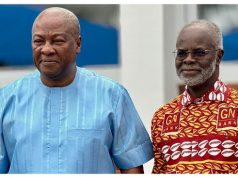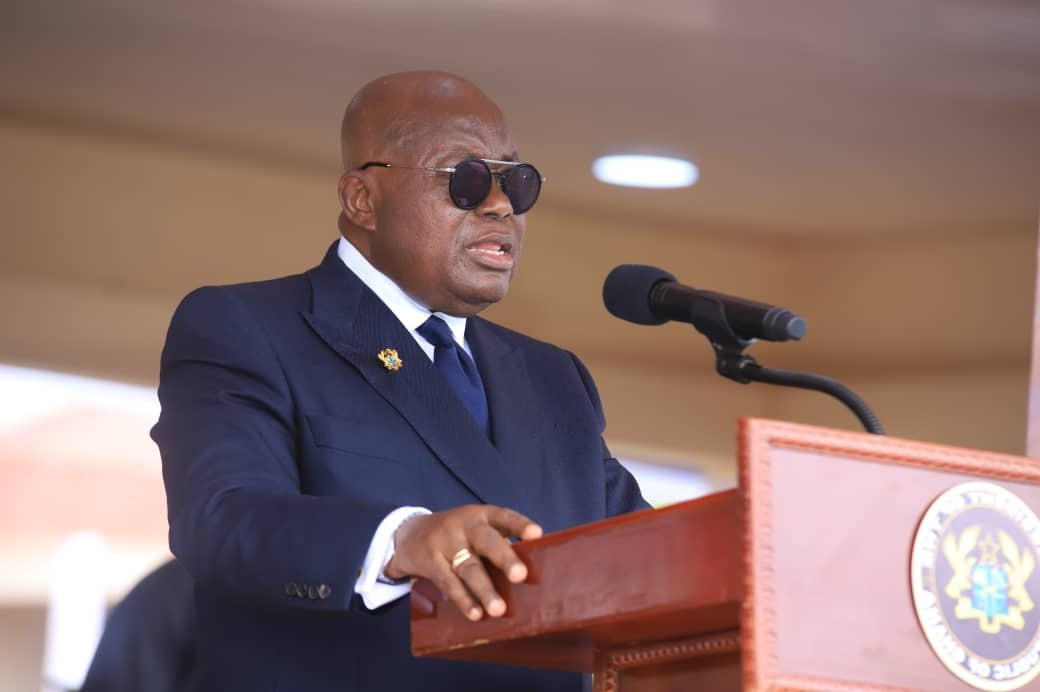A Ghanaian migrant who was sold in Libya has alleged that there are some Ghanaians involved in the booming slave trade.
Yao, one of the 126 Ghanaians brought in last week by the International Organization for Migration (IOM) said he and his four other Ghanaian counterparts were sold to the Libyans by one Kofi – a Ghanaian.
In a conversation with Kwaku Sakyi-Addo, host of the award-winning show, The Lounge last Friday, Yao narrated his harrowing experience spanning over a period of 15 months.
“I lived in Kumasi so I took a bus to Tamale, then to Bolga. From there, I went to Niger which was about a five-day journey. I met some Ghanaians, Nigerians and Senegalese who said they were also going to Libya,” he said.
“Someone showed me one connection man in Agadez and he was a Ghanaian from Bolga. He took us to a camp and we stayed there for one week. After one week, he took us to the Niger people who have the Toyota Hilux and he said the cost will be CFA 140,000 (US$250). We paid the money and he took us to a place and there were about 100 people who also wanted to go to Libya.
“They arranged us – 47 people each in five Toyota Hilux. They then will give you a stick to hold so you don’t fall down. We spent about five days on the desert. I took along my gari and shito and a gallon of water. I put salt in the water so that I don’t drink too much of it to last the five days.
“When we arrived, they sold us. There is a Ghanaian woman there who is into that business. She came to take her passengers to where she lives. A man called Kofi gave our driver money and told us a certain man will come and take you. Where they took us is more than a ghetto. You just sit there and they beat you. If the money he took from the man is a Ghs 1,000, you will pay Ghs2,000,” he recalled.
Yao, who used to operate a mobile money business in Kumasi before embarking on this journey, was beaten until he called his mother back in Kumasi to transfer Ghs 3,000 to his slave master to secure his release.
Improve livelihoods of Ghanaians
Sylvia Lopez-Ekra, Chief of Mission at IOM, charged the government to work to improve the livelihoods of Ghanaians, especially the youth, to reduce their appetite for risking their lives to seek greener pastures outside the country.
“If we do not address their livelihood issues, they will continue to take these risks… A lot of work needs to be done and it needs to be done now.” A video footage in which hundreds of people were being auctioned in modern day slave markets in Libya has provoked worldwide outrage, with a call on world leaders to work on lasting measures to stop the practice.
Libya, located in North Africa is the main transit hub for migrants to reach southern Europe by sea. However, since the overthrow of President Muammar Gaddafi, the country has been plunged into chaos with a takeover by the militias; a situation which has contributed to the advent of modern day slavery.
Since January 2017, the IOM has returned 14,000 people out of Libya and it is planning to return 15,000 more in the next three months.
Close to 400 Ghanaians have been brought back home from Niger and mainly Libya, with the recent batch of 126 coming in last week Wednesday.
According to Ms Lopez-Ekra, the IOM is working around the clock at the detention centers to bring the migrants back to their home countries.
She noted that although it is important to ask questions as to why they embarked on such dangerous journey, it is also imperative for citizens to have “compassion towards them because they need our support, they need our empathy.”
“We’ve brought them back and now we have to work on reintegration and it has to be sustainable. Not everybody has the capacity to immediately start something. Others will need support so we have to have the whole of society, government, civil society, development partners to find ways of providing employment for them,” she added.
Change Mindset
Ms Lopez-Ekra was of the view that working to the mindset of the youth would significantly help the situation.
She explained saying, “You have to think about what is it that people see in their communities. What they see is that the migrants who come back can build a house, they can buy a car, they have more money than the rest of the community and everybody wants that…so there is this desire even in social status. I think there are more respect that comes with it so it is highly desirable in many communities in Ghana to migrate…We have to work on the mindset.”
“I think all of them go because they want a better future for themselves and their families and also to see if they can create a better life there. It is quite easy to put a distance between what you see on TV and reality. They see and know that some people may die but they believe they will not – this is one characteristic of young people; they think that they are invincible, they are strong and they can make it. They believe that if it is their fate to get there, they will make it,” Mz Lopez-Ekra added.
As part of the IOM’s efforts to sensitize the youth, they have appointed Ghanaian rapper and songwriter, Kofi Kinaata as its Goodwill Ambassador to educate young Ghanaians about the dangers associated with the journey across the Sahara Desert and the Mediterranean Sea to reach North Africa and Europe.









